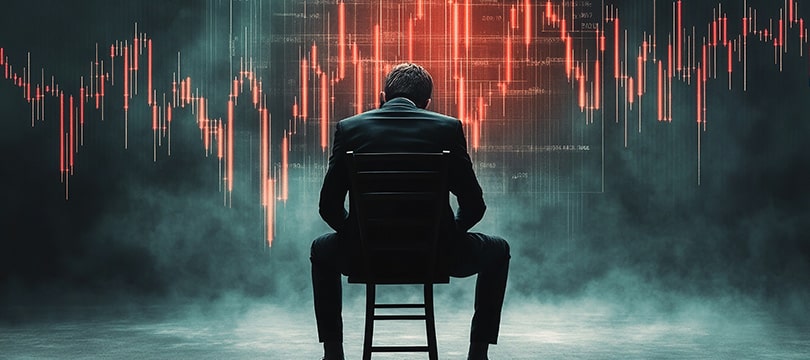Why First Trades Often Go Wrong
August 4, 2025

Have you ever noticed how most traders who approach financial markets for the first time tend to lose money rather quickly? If you've found yourself wondering why, or if it's happened directly to you, know that you're not alone.
But don't worry: in this article, we'll explore together the main difficulties traders encounter in their first trades, analyze the reasons why initial results are often disappointing, and provide you with practical guidance on how to react and overcome these obstacles.
The difficulties of the first trades
When a trader approaches the markets for the first time, they encounter some difficulties that can complicate their first steps. These difficulties mainly stem from a lack of experience and in-depth knowledge of the dynamics of financial markets. But here are the three most common challenges.
Poor understanding of the market
During the early stages, traders often haven't yet acquired a solid understanding of market dynamics and fluctuations. This can lead to misinterpretations of market signals, causing trading decisions based on incomplete information or not sufficiently analyzed.
Ineffective risk management
The lack of a solid risk management strategy represents another major difficulty for those taking their first steps in trading. Beginners often risk too much capital in single operations or don't use fundamental tools such as stop-loss and take-profit. In simple terms, they expose themselves to significant losses.
Excessive emotionality
The typical novice trader tends to experience their operations with a high degree of emotionality. Fear, anxiety, and greed can influence operational decisions, leading to prematurely closing profitable positions or keeping losing ones open, hoping they will reverse in their favor.
Why the first trades go wrong
Analyzing the reasons behind the failure of the first trades is fundamental to understanding which crucial aspects to focus on for improvement. Some can be inferred from what has been said so far. But here are the most evident reasons.
Lack of adequate training
Many traders venture into the market without having invested the necessary time in training. The "trial and error" approach may initially seem attractive due to its simplicity, but in practice, it's extremely costly, both economically and psychologically. Solid training is instead essential to build the foundations for profitable trading.
Unrealistic expectations
Traders often start with the illusion that trading is a simple and quick method to earn large sums of money. These unrealistic expectations drive reckless behavior and excessive risk, quickly leading to failure.
Absence of a trading plan
Entering the market without a well-defined plan means navigating without a compass. Inexperienced traders often act impulsively, opening random positions or based on suggestions found online without a clear strategic logic. This improvised approach is destined to fail in the long run, making the first trades particularly problematic.
How to react
Faced with initial failures, it's essential to react with rationality and method. Only in this way can one lift oneself from the quicksand of defeat and avoid the classic vicious circle.
First of all, one must accept that initial errors are a normal part of the learning path. Instead of getting discouraged or trying to immediately recover losses with impulsive operations, the trader must stop to lucidly analyze what happened, clearly identifying the mistakes made. They must take it philosophically.
Subsequently, it's essential to invest in training, deepening the techniques of technical and fundamental analysis, risk management, and emotional control. A trader who constantly studies and applies what they've learned with discipline will gradually see their results improve.
Finally, it's good to develop and follow a clear trading plan with discipline, precisely defining when to enter and exit the market and how to manage each operation. This allows gradually overcoming initial difficulties, building a solid foundation for a future of sustainable and profitable trading.




